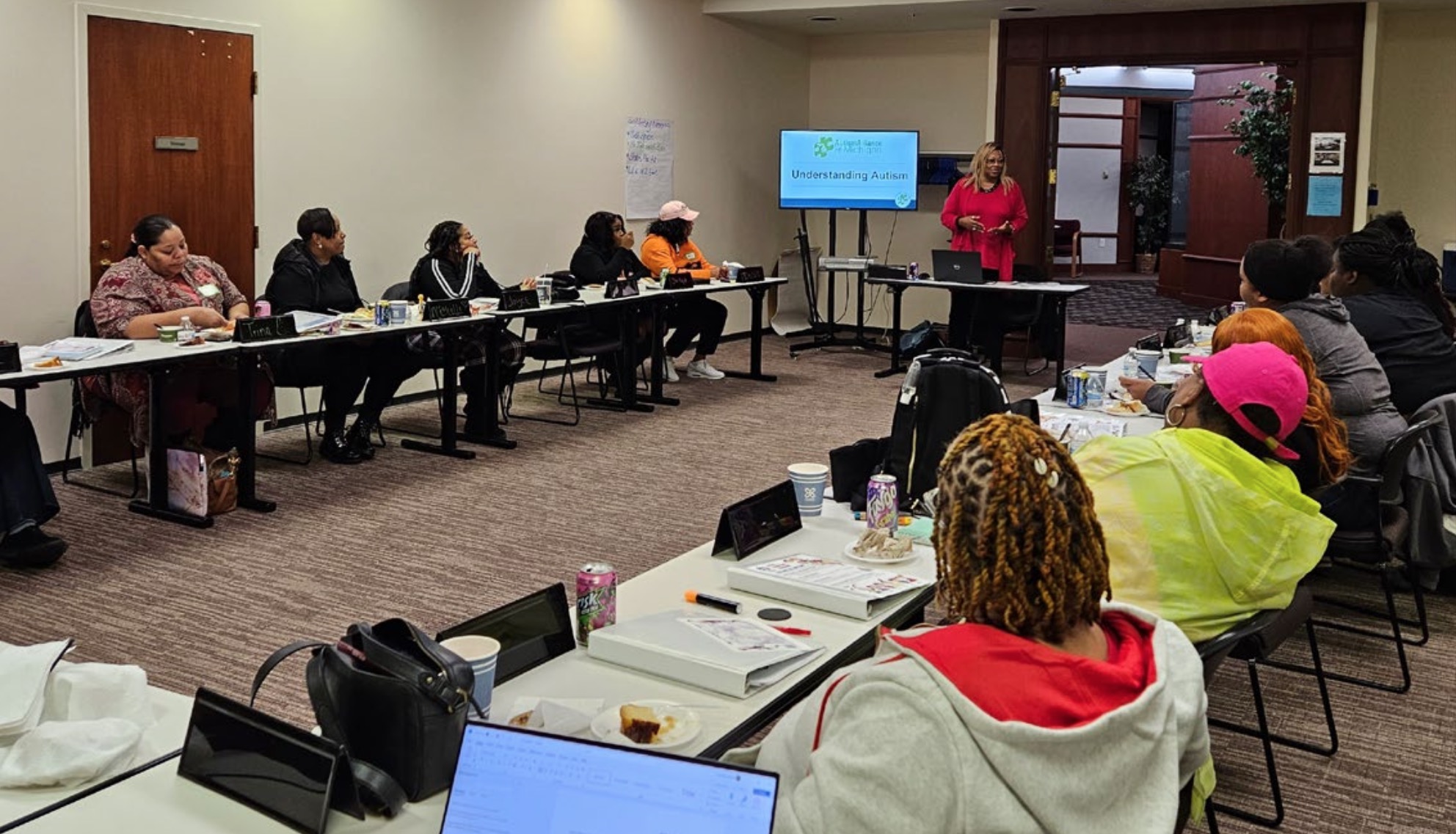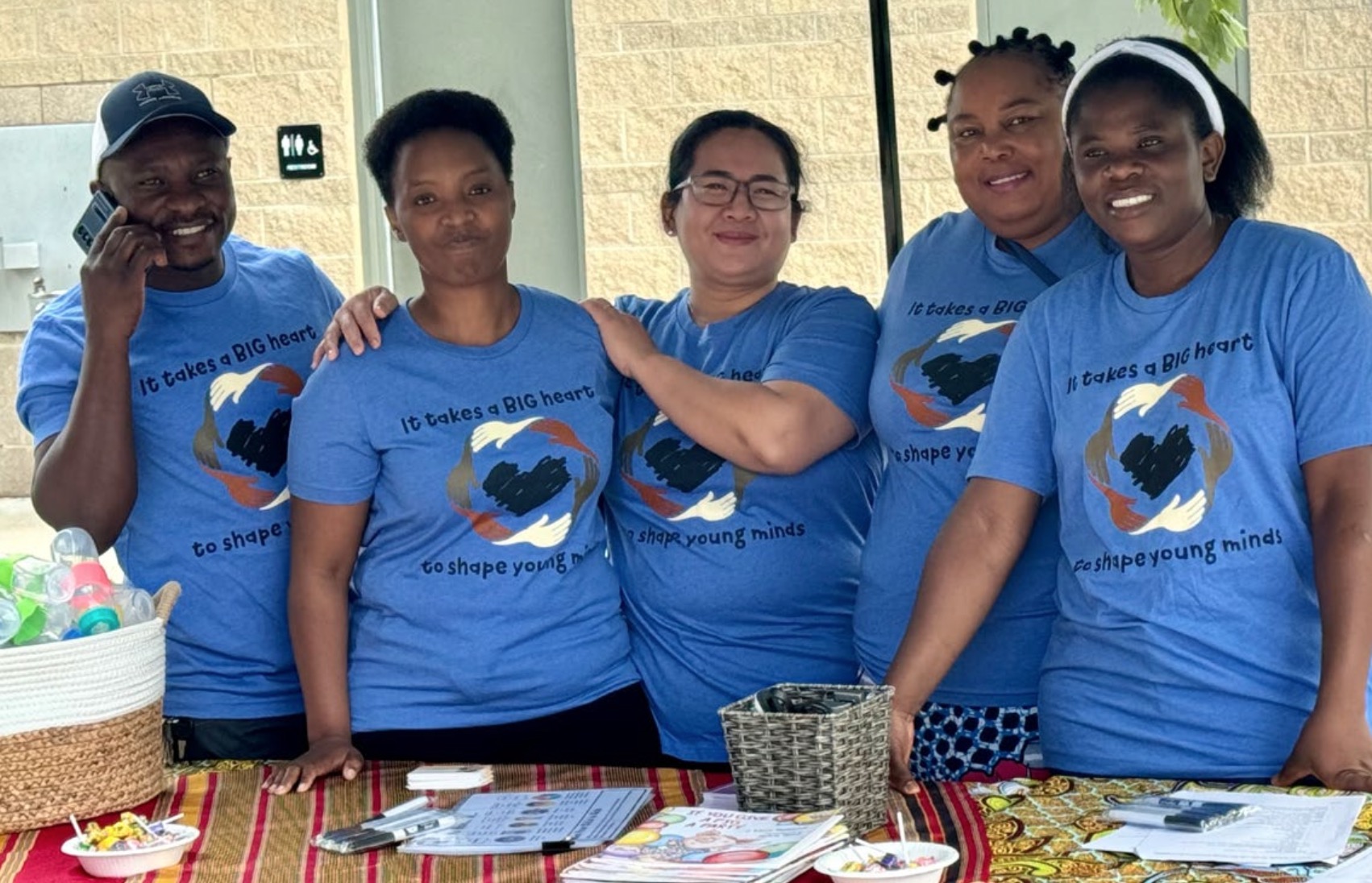Family Child Care Networks:
A Powerful Strategy to Realize Sustainable Home-Based Child Care Businesses and Enhance Access to Comprehensive Services for the Children and Families They Serve
Need
Home-based child care is an essential, yet undervalued component of Michigan's early care and education system. Families seek out and choose home-based child care for a variety of reasons, including the benefit of small, home-like settings for their infants and toddlers. Additionally, for children and families of color, those who have immigrated, those who work hours outside of the traditional 9-5, and those for whom English is not their primary language, home-based child care allows care to meet their needs and share racial, cultural, or linguistic characteristics with the family—leading to more culturally responsive care of young children and more peace of mind for families.2
Despite their critical role in Michigan's early care and education mixed delivery system, home-based child care is in short supply in many communities. Home-based child care (HBCC) businesses face many of the same systemic challenges faced by child care centers, but efforts to stabilize the child care industry often fail to recognize the unique nature of the home as a site of high-quality child care.
To sustain this unique type of child care business, in 2022 the Michigan Legislature passed The Family Child Care Networks Act that required local Family Child Care Networks be established to provide supports to home-based businesses in every region of the state. The Act sets a standard for networks ensuring that each one equitably provides: business, operational and program quality supports, connections to peers, training and technical assistance, while also engaging new providers.
2. Bhat, S., Howard, M., Caldwell, J., Montoya-Ávila, A., Strueby, S., Valladares Kahn, S. (2022). Michigan family child care networks: Final report. School Readiness Consulting.

Project
The purpose of the Family Child Care Network (FCCN) project was to pilot a state-wide Family Child Care Network strategy, including building the capacity of Network Hub organizations, starting-up new networks and expanding existing networks for state-wide reach. The goals of the Family Child Care Network strategy were to:
- Connect and support home-based child care programs, including license exempt child care providers, in the delivery of essential services to improve program quality and strengthen home-based care.
- Improve the policy, funding, and regulatory environments for home-based child care in MI.
- Build the capacity of FCCNs to support home-based providers through consultation, educational and engagement opportunities with decision-makers and policymakers, and connections with state and local resources.
Results
Created 9 new networks across the state, for a total of 22 networks that are representative of their communities
- 4 networks serve immigrant and refugee providers
- 3 serve Arabic-speaking HBCC business owners
- 3 serve Spanish-speaking HBCC business owners
Grew network membership by 165 home-based child care business owners, for total membership of over 450 HBCC business owners
Reduced barriers + provided supports for:
- 43 HBCC business owners to become licensed
- 9 HBCC providers to become licensed exempt
- 55 HBCC business owners to start accepting the child care scholarship (formerly subsidy)
Held the first FCCN Roundtable
Improving Sustainability and Profitability of Child Care Businesses
A central objective of the FCCN model is improving the financial sustainability of home-based child care businesses. In the project's pilot year, FCCNs focused on sustainability and profit through several economic interventions. In Kent County, the Mainspring Early Care Alliance operates a shared services model that connects FCCN members to existing and new business partner experts in financial planning, record keeping, tax preparation, banking basics, human resources, and a business document library developed by Civitas Strategies. Additionally, FCCN members have participated in small business networking events with the Grand Rapids Chamber, West Michigan Chamber of Commerce, People First Economy's Good for Michigan and Local First. Through Mainspring Alliance, FCCN members are enrolled in a Wellness Assistance Plan, also known as EAP support. The EAP program provides financial and legal assistance and 24/7 access to licensed counselors, including five counseling sessions per year for the members and household family members.
“The role of a home child care provider is uniquely complex and there is no guidebook for the systems we have to maneuver as both small business owners and early childhood professionals. The lack of availability of support and resources can be very exhausting. The FCCNs are really attacking this, and the great thing about it is the providers are leading the way so the resources coming out of the FCCNs really match our needs.”
— Rebecca Keller, Home Based Child Care Business Owner, Mainspring Early Alliance Co-Chair, FCCN member
Increasing the Community Impact of Home-Based Child Care Businesses by Connecting Families and Children to Comprehensive Services
Home-based child care businesses play a vital role in preparing children for school and addressing children's developmental needs. While they are experts in early education and care, accessing existing community resources for services like developmental screenings, early childhood mental health consultations, and health and nutrition programs can be challenging as a small business owner. In addition to supporting the business sustainability of home based child care businesses, the networks form connections between home-based providers, their children and families, and existing community resources.
Bethany Christian Services (BCS) received specific funding to work with immigrant and refugee communities in West Michigan. This network addressed the unmet need for child care in the community by connecting home-based child care business owners with a community event to support pregnant mothers. Network members supported the planning and implementation of the event and had many opportunities to market their services and explain their child care approaches with the direct support of BCS interpretive staff. Over 200 people attended this event and home-based business owners were able to connect directly with parents to build their enrollment.
“[The Conference] was truly the culmination of [Network members'] work together, but it was also the beginning of a whole new way for these providers to be with each other”
— Mary Manner, Director, Great Start to Quality Northwest Resource Center
Supporting Provider Success with Great Start to Quality and Child Care Licensing by Leveraging Peer Collaboration
Family Child Care Networks (FCCNs) support equitable access to operating a home based child care businesses by reducing barriers to licensing and navigating MI's Great Start to Quality system. Navigating these systems can be particularly challenging for immigrant business owners who speak English as a second language. In response to these challenges, Child Care Network partnered with their local licensing consultant to make the licensing process more approachable for brand new child care business owners who speak English as a second language. Child Care Network provided translations of the licensing manuals and worked with these child care leaders to ensure that their linguistic needs were met. Business owners learned how to navigate the online licensing portal, finding a plain language child care licensing guidance they could use to explain policies to parents, and more.

In northwest Michigan, the members of the FCCN explored available professional development opportunities, finding that most offerings didn't appear to be developed with them in mind. In FCCN meetings, these early education professionals shared and discussed the elements of different curricula they use in their early education programs, sharing best practices and capacity with each other. Based on these experiences, the FCCN developed and hosted a local conference specifically for other home-based child care professionals in the region. The conference was the first of its kind in the area and attracted over 80 attendees.